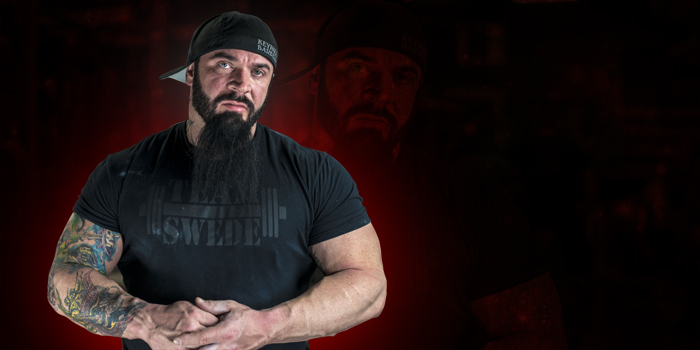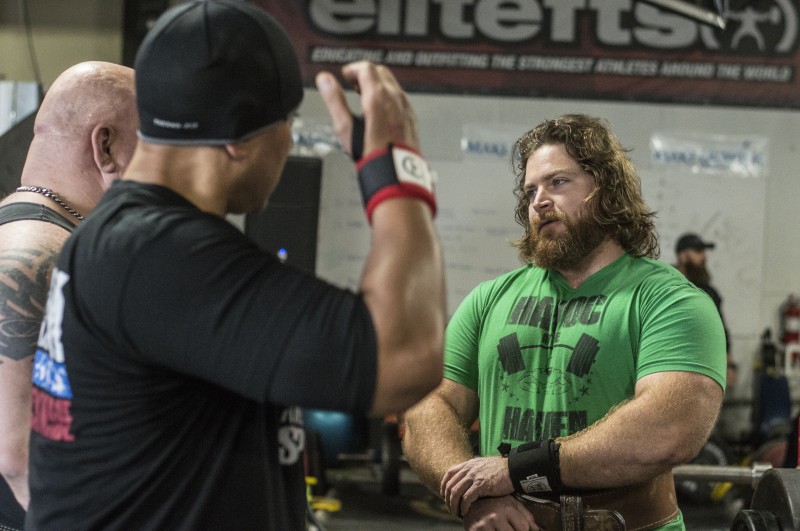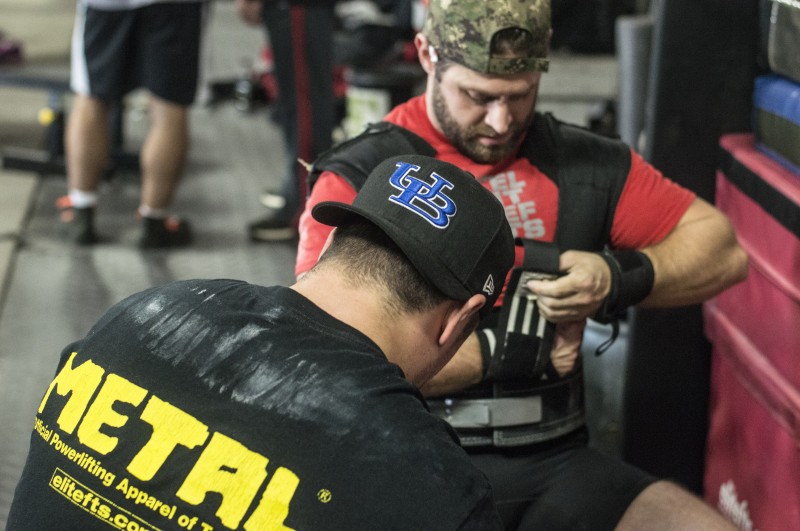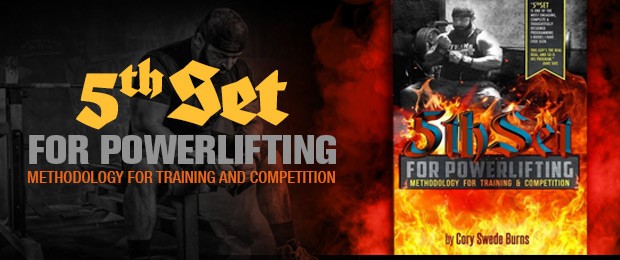
Let go or be dragged.
It has been said that hope is the nursemaid of misery, and there may be something to that line of logic. But we can't really be expected to give up all hope, can we? That would leave us, after all, hopeless, not a far cry away from the misery we were trying to escape.
This presents a riddle most all of us struggle with. If you haven't yet, don't worry. Stay alive long enough and you will. I promise.
Your health will falter. Your loved ones will die. Relationships will end or change in ways you won't want to accept. Your skills and abilities will dull and begin to fade. These things have already begun and are happening right now, actively, as you read this.
This is quite possibly the biggest source of anxiety for a human being, the impermanence of it all. Namely, the things we would like to keep.
RECENT: How to Wrap and Why — A Guide to Wrist and Knee Wraps
We are gifted with a measure of talent, intelligence, vitality, love and an identity, all our own. But if we are honest with ourselves, we know that the moment we had the presence of mind to recognize these things, we also knew on some level that they were not here to stay.
In fact, nothing is here to stay.
Now, powerlifters are mostly humans. There are a handful of exceptions, but even those are subject to the same rules we are.
The thing about a lifter is just that. The lifter is a lifter. It is a thing we do that can very quickly become who we are. As a coach of lifters, I play the role of priest, psychiatrist and father to many. So, I am uniquely familiar with a wide variety of the obstacles we run into. In fact, I wrote an expansive article on the subject awhile back.
If you have read it, you'll remember that some of these obstacles were universal. Meaning they applied to lifters and non-lifters alike. This topic is another one of those, and though it runs right to the heart of most powerlifters, probably any human can relate.
I am going to pull the heart strings, here, and use the example of losing a loved one. Sometimes we lose someone we love suddenly. Sometimes it is a process. Sometimes loss can seem sudden when really there were signs present all along and we simply refused to recognize them. And even when the loss arrives it can take time to accept, but I'll get to that.
This comes back to introspection. Let me be clear, I am not some fucking sage. Nor do I claim to be a bastion of self-awareness. The people who do are usually the most petulant and clueless. I am in touch with myself enough, however, to recognize that sometimes it takes me, looking in the rearview, to see the truth of things.
Every fire dies. Sometimes it is the fire inside of us, keeping body and soul together. Sometimes it's the fire keeping a romantic relationship or marriage afloat. There are exceptions to what I am going to say next, but in most cases, either of these is a process.
It doesn't usually happen all at once. Though, many times, we don't accept these things until we have no other choice.
All of these parallels hold true for the powerlifter, the fire, in that case, being the lifter's ability to perform or improve. I can tell you first hand that this loss is no smaller thing. It is a loss of identity and a loss of self, like a small death.
Like any death, when it arrives, it does so bearing the gift of grief. Some people will tell you that grieving is not a process because it never truly ends. I read a book about that last year, but I strongly disagree.
In my life, if there is one thing with which I have become well acquainted, it is grief. I will offer that it is, in fact, a process. Though it may never completely go away, it certainly does change.
When we let go of someone we love, for example, it's never all at once. We let them go by degrees, and it can begin before they are even truly gone.
The big pieces go first, like their constant company. The parallels hold true here, too. For an injured or aging lifter, the first things to go are the big ones and believe it or not, these are the easiest to accept. The ability consistently perform in training, or to recover from training: these things can leave us slowly or all at once, but we accept their loss more quickly because we are forced to. We adapt. We change things to accommodate our abilities.
It's the little things that last the longest. In the example of the lost loved one, sites, sounds and smells can involuntarily evoke emotionally powerful memories. Places you both enjoyed or a song the two of you liked become ghosts that pass through from time to time, haunting, tormenting. It's doubly difficult, because we are not only haunted by the people in our memories but also by the people we were, when we were with them. These same ghosts chase lifters in a similar fashion. The ghosts of our former abilities, of our failing identities.
They can be conjured in a number of subtle ways. The sensory cortex of the brain receives and interprets signals from our skin, mouths, eyes and ears. There is reason to believe that sensory information is coupled with emotional information and stored that way, linked in that manner.
So when we hear a song, or experience the smell of a brisk day; when the grass is still bright green, but the trees and clouds have given way to the Fall; these bits of sensory information can wake the apparitions within us, which once accompanied them. Anyone who has been through the loss of a loved one can tell you, these unexpected surfacings can be devastating. Until, one day, they come and you smile, and you're able to remember those things fondly.
The smell of ammonia and chalk in the air. Sharp knurling, digging into our hands. Muscles engorged with blood, the clothing soaked in sweat. A lifter should never be forced to let these things go. And with a healthy amount of acceptance and self-awareness, most of us won't have to. At least not for a long time. But there is a balance in it, that last part.
Accept everything and expect nothing. These are words I live by. That is not to say we need to be happy about everything the way it is, but accepting that things are where they are, currently, puts us in a better position to make a realistic plan of action to change them. But "realistic" is the key word there.
I talk a lot about being a discerner, being able to recognize who to listen to and who to ignore; being able to know when to let go and when to hold on. This isn't just talk. These are things I have struggled with myself in my life and often learned the hard way.
There will come a point, I promise you, in any scenario involving loss, where you will be faced with the decision to "let go or be dragged." If you are not willing to accept the fact that the talent, or ability, or person is gone or fading in a way that cannot be reconciled, you will be dragged. If you don't let go, you will be dragged and end up in a much worse position than you could have, if you'd been honest with yourself and willing to accept things as they are, without expectation.
It's been my experience that after I let go is when the magic happens and not a second before.
Consider that only a very small percentage of you who follow me do so because you knew me for the good lifter I was before I got hurt. All of the rest of you know me for what I did after I was forced to let go. Often, letting go is not an ending, but a transition.
I haven't given up on being that good lifter I was once again, or even being better than I was before. I am simply in touch with the reality of the situation as it stands, and what it will take for me to get there.
I've had to let go again and again throughout the course of my recovery when things didn't go the way I wanted. I may have to let go a few more times before I am through, and even if I never get there, learning to surrender to the facts has helped me more than I could have ever imagined. And it has allowed me to help people on a scale that I could not have possibly dreamed.
If worse comes to worse, it has equipped me to handle reality down the road, when the end finally does arrive.
The more important lesson to take from all of this is that approaching obstacles in powerlifting and life with an attitude of acceptance, without expectation, allows us to make decisions from a place of clarity. This increases the likelihood of us reaching our respective potentials and contributes to the longevity of our abilities.
Please share this article if you found it helpful and feel free to contact me with topics you'd like me to write about in the future.













3 Comments